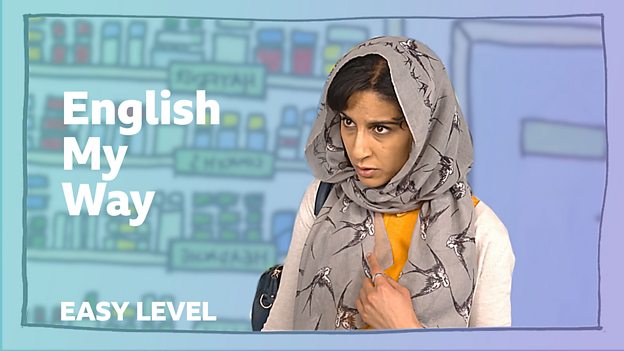Lingohack
Intermediate level
How to make people like robots
Episode 220420 / 20 Apr 2022

The story…
How to make people like robots
Learn language related to…
behaviour
Need-to-know language…
playful – enjoys doing things for fun and not with a serious purpose
curious – keen to know or learn something new
sociable – friendly, willing to talk or engage with people
interact – engage with something expecting a reaction
accept – consider something normal
Answer this…
Why might it be decades before people share their homes with robots?
Transcript
Come on, wake up, BB-8. Come on.
How do you make a robot likeable?
Oh sorry, sorry, sorry.
It's a simple enough question…
You're just being grumpy now.
… but it needs complex science to find an answer.
Scientists at the University of Hertfordshire [UK] asked volunteers to play with the simple reactive robot. The same robot was then programmed with an algorithm to make it playful and curious, and they compared what people thought.
Dr Marcus Scheunemann, University of Hertfordshire, BotsandUs
Comparing it with humans who interact with the reactive robot and this curious robot, we know now that we find this robot more sociable, right? And from here we know. OK, if we have this element in a robot, people might be just more likeable towards [more comfortable with] this robot, more receptive, more happy [happier] that it is around them.
It's a first step but the team says it could still be decades before you've got a robot sharing your home.
Daniel Polani, Professor of AI, University of Hertfordshire
It's probably the hardest environment you can imagine, because it's so unstructured, unpredictable. It can change and there are many actors in it which you can't regulate. So, in a company you could make rules about how things are placed and where people can go. You can't do that in a household.
Richard Westcott, BBC reporter
I do love the idea that a robot could beat anyone in the world at chess, but it can't clean the shelf.
Daniel Polani, Professor of AI, University of Hertfordshire
Yes.
So, a real BB-8 is years off, but learning what people will accept is the first step to designing a likeable companion for your house.
Dr Marcus Scheunemann, University of Hertfordshire, BotsandUs
So yes - it's hiding!
Did you get it?
Why might it be decades before people share their homes with robots?
The environment in the home is difficult for a robot as it is unstructured and unpredictable.
Latest Lingohack
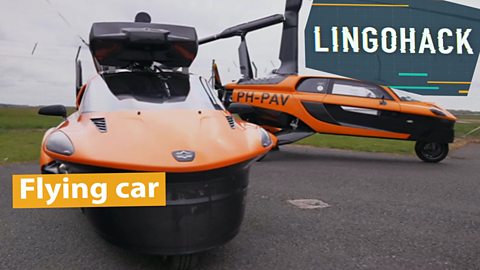
Flying car
Episode 220525 / 25 May 2022
Language related to retail: model, processing, licensed, orders, bring (something) to market.
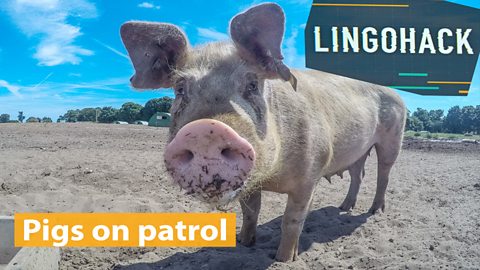
Pigs on patrol
Episode 220511 / 11 May 2022
Learn language related to farming: scarecrow, harvest, crop, soil, fertile
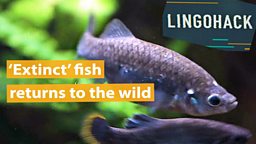
‘Extinct’ fish returns to the wild
Episode 220504 / 04 May 2022
Learn language related to disappearing and reappearing: missing, under the radar, bringing (something) back, recovering, making a comeback

Endurance: Shackleton's lost ship is found in Antarctic
Episode 220427 / 27 Apr 2022
Learn language related to shipwrecks: preserved, construction, pristine, portholes, raised
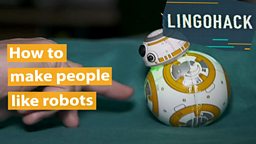
How to make people like robots
Episode 220420 / 20 Apr 2022
Learn language related to behaviour: playful, curious, sociable, interact, accept

Hope for people with diabetes
Episode 220413 / 13 Apr 2022
Learn vocabulary related to medical treatment: trial, monitors, game changer, quality of life, stabilised.

First woman of colour completes a solo expedition across Antarctica
Episode 220406 / 06 Apr 2022
Learn language related to physical challenges: comfort zone, gruelling, toughest, reservations, hardships

Going for gold in e-waste
Episode 220330 / 30 Mar 2022
Learn language related to chemical process: components, extract, heated, end result, recover

A family’s hope of ending discrimination
Episode 220316 / 09 Mar 2022
Learn language related to discrimination: to face, bullying, uniqueness, educate, stigma.
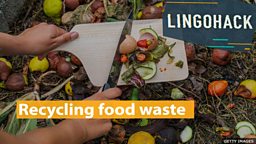
Recycling food waste
Episode 220309 / 09 Mar 2022
Learn language related to sustainability: deal with, breaks down, organic matter, sustainable, pathogens
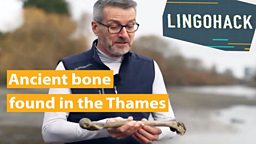
Ancient bone found in the Thames
Episode 220302 / 23 Feb 2022
Learn language related to rivers: lurking, shallows, causeway, low tide, mudflats
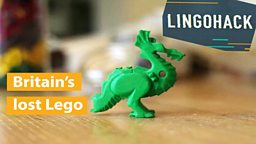
Britain's lost Lego
Episode 220223 / 23 Feb 2022
Learn language related to the beach and the ocean: wash up, shoreline, off the coast, ocean currents, tide

Boxing to beat Parkinson’s disease
Episode 220216 / 16 Feb 2022
Learn language related to health and lifestyle: quality of life, rock bottom, medical intervention, exercise-orientated therapy, back on its feet

Out-of-hours work ban
Episode 220209 / 09 Feb 2022
Learn language related to work: civil servant, job, boss, normal hours, private sector.

Electric buses: greener public transport
Episode 220202 / 27 Jan 2022
Learn language related to buses: chugging, double-decker, secreted, cabin, range
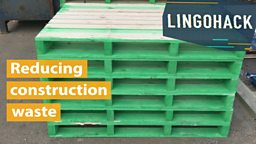
Reducing construction waste
Episode 220126 / 26 Jan 2022
Learn language related to construction: wooden pallets, skip, manufacturing, supply chain, building site

Following whales round the Southern Ocean
Episode 220119 / 19 Jan 2022
Learn language related to researching animals: conducted, tags, track, migrations, transmitting
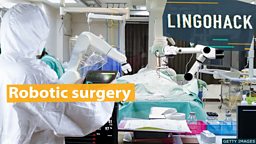
Robotic surgery
Episode 220112 / 12 Jan 2022
Learn language related to surgery: operation, medical field, patient, surgeons, keyhole surgery

Protecting seahorses
Episode 220105 / 05 Jan 2022
Learn language related to sea and boats: teeming with (life), mooring chains, seabed, tide, seafarers

How tourism and science work together in Antarctica
Episode 180522 / 18 May 2022
Learn language related to behaviour: alluring, remote, expedition, ambassadors, fragile


